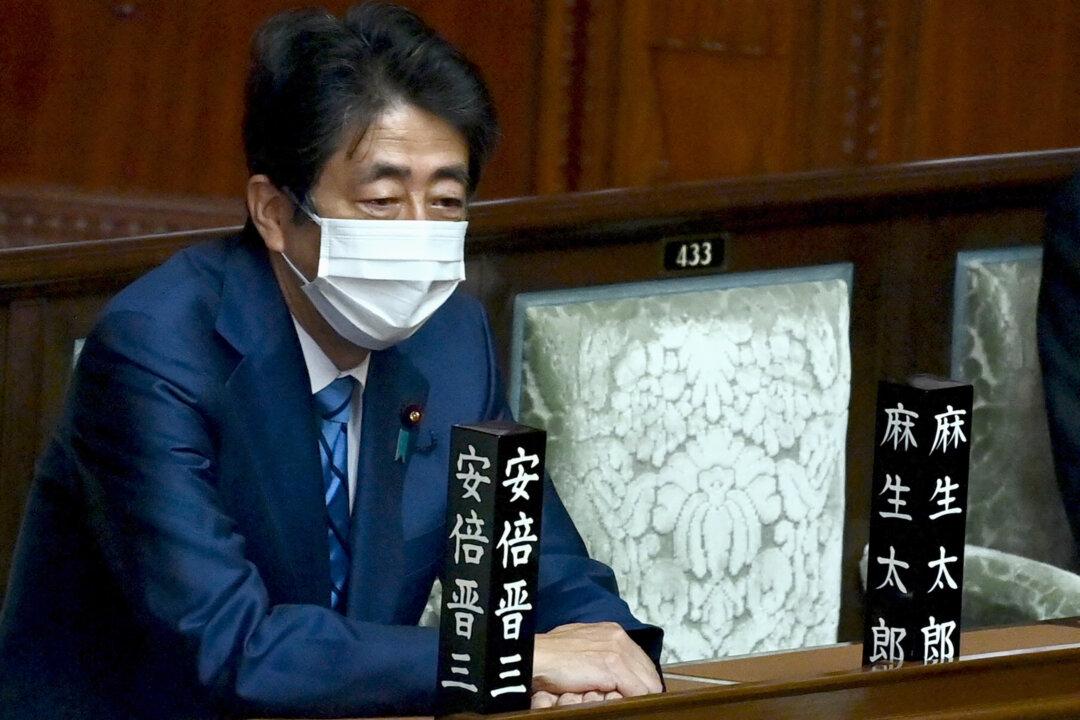Former Japanese Prime Minister Shinzo Abe warned China on Wednesday not to “misjudge” the situation in the East China Sea and “go astray” in its actions during a virtual address to a Taiwanese think tank on Japan-Taiwan relations.
His speech angered Beijing, which said via its foreign ministry spokesperson that it “deplores and rejects” Abe’s statements, and has lodged “stern” complaints with Japan through diplomatic channels.





